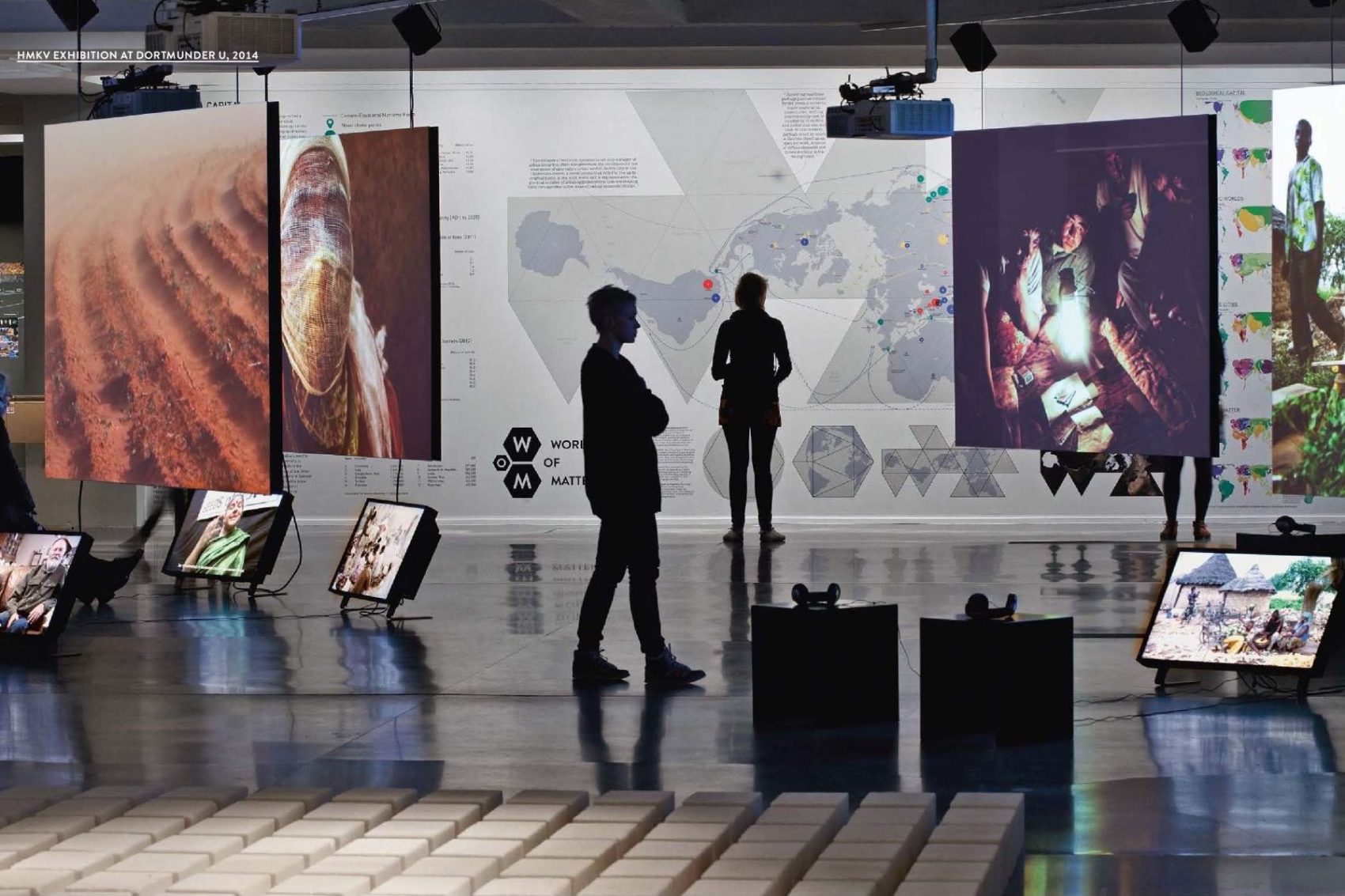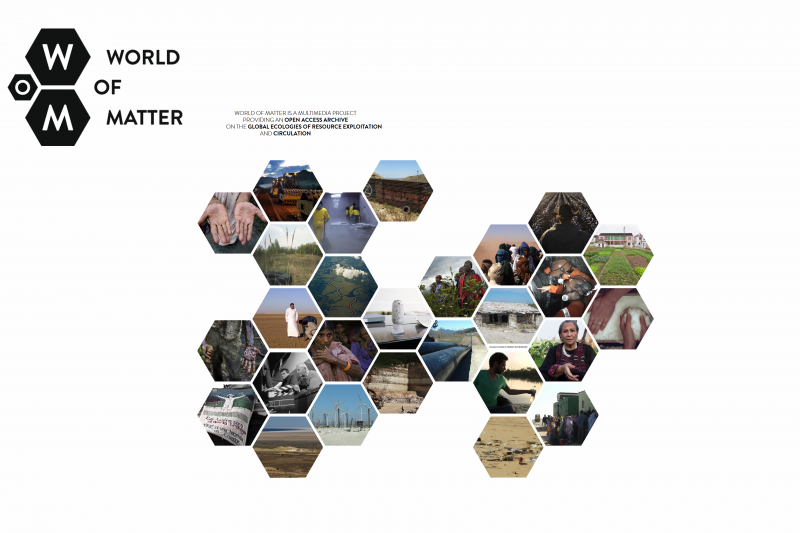World of Matter is an international art and media project investigating primary materials (fossil, mineral, agrarian, maritime) and the complex ecologies of which they are a part. Initiated by an interdisciplinary group of artists and scholars, the project responds to the urgent need for new forms of representation that shift resource-related debates from a market driven domain to open platforms for engaged public discourse.
The project seeks to develop innovative and ethical approaches to the handling of resources, while at the same time challenging the very assumption that the planet’s materials are inevitably a resource for human consumption; this human-centered vision has been the motor for many environmentally and socially disastrous developments. The social ecologies presented on this site give evidence to the interdependence between human and non-human actants in this fragile system.
World of Matter considers visual source material a valuable instrument for education, activist work, research, and raising general public awareness, particularly in light of the ever more privatized nature of both actual resources and knowledge about the powers that control them. Hence the project acts through exhibitions, public events, publications and an online platform.
COOPERATIVE OF THINGS
While the many different approaches to emerging eco-systematic assemblages cover fairly distant sites and quite specific local constellations, one characteristic they tend to share is that of a conflictive confrontation between on-site conditions and translocal dealings—a conflict that not only stems from antagonistic self-interests, but is underpinned by wider philosophical concerns about how we can make sense of our collective being in the world. This urge to find a different theoretical framework, a framework better suited for the complex interplay of human and non-human forces, has surfaced in parallel to a growing recognition that the current crisis cannot be overcome by purely readjusting the settings of old-school economic operations. It is here that the call for a new ecological understanding fuses with the call for a new political economy.
URBAN RESOURCES AT THE CROSSROADS
The acceleration in the mining of mineral resources over the last decades has been staggering. Between 1984 and 2011 the world production of mineral raw materials (iron, ferro-alloy and non-ferrous metals, industrial minerals and mineral fuels) has risen from 9.4 billion to 16.6 billion metric tons, representing an aggregate growth rate of 77 percent. In 2008 total global resource extraction—metal ores, fossil fuels, industrial and construction minerals, and bio mass combined— amounted to 68 billion tons. It is important to understand the parallel trend of increasing global urbanization as not merely mirroring this development, but as a key driving force behind global resource extraction and consumption. Indeed, the most pronounced increase in resource extraction concerns the area of construction minerals. While this is the least well documented area of resource exploitation, and data is sometimes patchy and varied, calculations indicate a growth of up to 135 percent over the last thirty years.
GEO-ENGINEERING: CLIMATES OF CONTROL
Control over resources has undoubtedly become the driving force behind development planning and government policies regulating our relationship to the environment. While the threat of resource depletion may be an important motivation for this orientation, it is also fuelled by deep-seated fears of environmental insecurity due to changes in the scale and magnitude of environmental degradation. Against the background of slowly evolving problems such as air pollution, global warming, and climate change, on the one hand, and dramatic, major accidents such as oil spills and industrial fires and explosions, on the other, “risk management” has become a buzzword frequently used in connection with the development of programs for increased environmental control.

